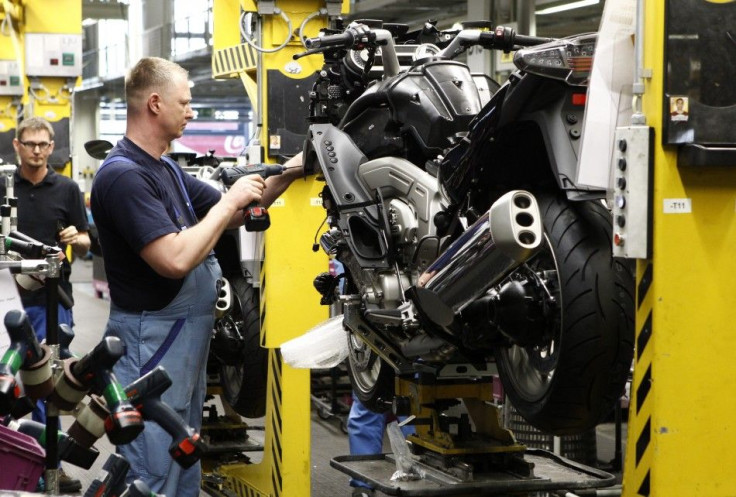German Economy Slows in Second Quarter As Eurozone Debt Fears Spiral

German economic growth slowed down dramatically in the second quarter, paralleling a slowdown in the euro zone as a whole.
The economy climbed by only 0.1 percent, according to the country’s national statistics office. The growth for the first quarter was revised downward to 1.3 percent from 1.5 percent.
Growth in the euro zone slipped to 0.2 percent during the second quarter.
The statistic office indicated that while German exports grew, imports also sharply rose.
Joerg Lueschow, an economist at West LB, a German commercial bank, told reporters: "This [data] is a serious disappointment. I was surprised that private consumption went down. As a whole, Germany cannot evade the global slowdown. This does not provide any positive signs for euro zone GDP. We cannot expect more than stagnation now."
Germany has been Europe’s principal economic growth engine, but now appears to be stalling, Last week, French economic numbers also came in tepid.
The disappointing data comes ahead of a scheduled meeting between Germany’s Chancellor Angela Merkel and French President Nicolas Sarkozy in which they will discuss the euro zone debt crisis that now may swallow up the key nations of Italy and Spain.
Timo Klein, a senior economist at IHS Global Insight in Frankfurt, said the second-quarter weakness partially “reflects a correction to the unusual buoyancy of the first quarter, as construction investment corrected downwards from levels boosted during January-March by the mild winter.”
In addition, he notes, private consumption appeared to have declined sequentially in the second quarter, dampened by inflation and Euro zone debt crisis fears.
© Copyright IBTimes 2024. All rights reserved.





















